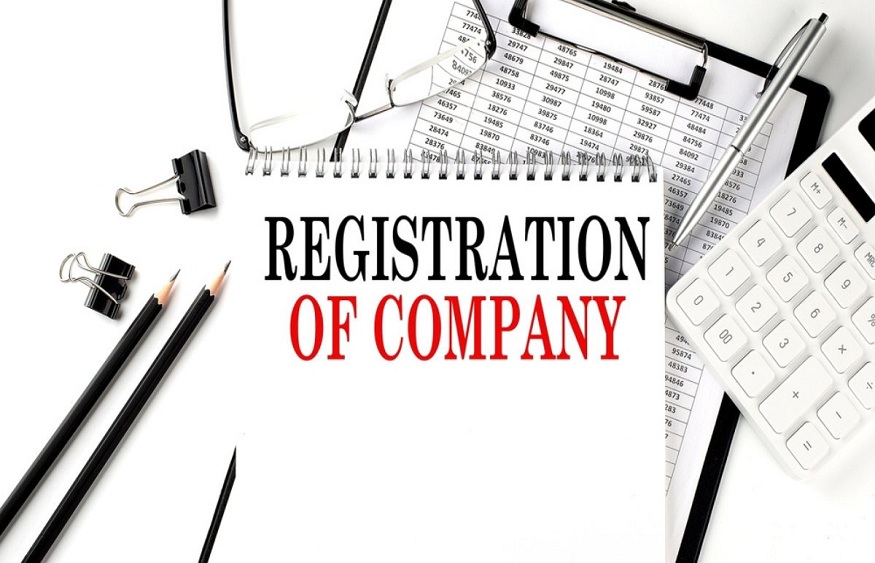Are you an aspiring entrepreneur ready to turn your passion into a thriving business? Before diving headfirst into the exciting world of entrepreneurship, there’s one crucial step you simply cannot afford to overlook: registering a business. While it may seem like just another daunting bureaucratic task, we’re here to show you why it’s absolutely essential for legal compliance and the long-term success of your venture. From protecting your personal assets to gaining credibility with customers and investors alike, join us as we delve into the top reasons why registering a business is not only a legal obligation but also an invaluable strategic move that sets the foundation for growth and prosperity.
Introduction to Business Registration
As a business owner, it’s important to ensure that your business is properly registered with the government. This not only ensures that you’re in compliance with the law, but also allows you to take advantage of certain benefits and protections that come with registration.
There are a few different steps involved in registering a business, which vary depending on the type of business and where it’s located. But in general, you’ll need to obtain a business licence or permit from your local government first. Once you have that, you can then register a business with the state or federal government as required.
The process of registering a business can seem daunting at first, but it’s actually relatively simple once you know what needs to be done. And once your business is registered, you can rest assured knowing that you’re in compliance with the law and are taking advantage of all the benefits that come with it.
Benefits of Registering a Business
There are many benefits to registering a business, including ensuring legal compliance. By registering a business, you are ensuring that you are meeting all of the necessary legal requirements for operating your business. This can help avoid any potential legal issues in the future. Additionally, registering a business can also help you build credibility and establish yourself as a professional in your industry. Customers and clients will be more likely to do business with a registered company than an unregistered one. Registering a business can also help you protect your intellectual property and safeguard your brand identity.
What You Need to Register a Business
If you’re starting a business, you need to register it with the appropriate government agencies. This is essential for legal compliance and gives your business legitimacy. Depending on your business structure and location, you may need to register with the federal government, your state government, or both. You will also need to obtain any necessary licences and permits.
To register a business, you will need to choose a business structure and file the appropriate paperwork with the government. The most common business structures are sole proprietorships, partnerships, limited liability companies (LLCs), and corporations. Each has its own advantages and disadvantages, so it’s important to choose the right one for your business.
Once you’ve chosen a business structure, you’ll need to obtain a tax identification number from the IRS. This number is used for tax purposes and will be required when you file your taxes.
Depending on your business activities, you may also need to obtain licences and permits from state or local governments. For example, if you’re planning on selling food products, you’ll need to obtain a food licence from your state’s health department. Failure to obtain the proper licences and permits can result in hefty fines or even jail time.
So as you can see, there’s a lot involved in registering a business. But don’t let that dissuade you—registering a business is an essential step in ensuring legal compliance and protecting yourself from liability down the road.
How to Choose the Right Business Structure
When you’re starting a business, one of the first things you need to do is choose the right business structure. There are several different types of business structures, and each has its own advantages and disadvantages. The type of business structure you choose will impact factors like how much money you can raise, how much personal liability you have, and how easy it is to sell your business.
One of the most important factors to consider when choosing a business structure is what kind of legal liability you’re comfortable with. If your business is sued, the court will look at your business structure to determine how much personal liability you have. For example, if you’re a sole proprietor, all of your personal assets are at risk if your business is sued. But if you’re a corporation or an LLC, your personal assets are protected from lawsuits against your business.
Another factor to consider is how easy it would be to sell your business. If you’re a sole proprietor, it’s very difficult to sell your business because it’s essentially just selling yourself. On the other hand, corporations and LLCs can be sold relatively easily because they exist as separate legal entities from their owners.
Consider how much money you’ll be able to raise for your business. If you’re looking for investors or loans, banks and venture capitalists will usually only invest in corporations or LLCs. So if you want to attract outside investment, those are usually the best types of businesses to form.
Types of Legal Compliance for Registered Businesses
There are a number of compliance requirements that businesses must adhere to in order to remain registered and legal. Depending on the type of business, these requirements may vary. However, some of the most common compliance obligations for registered businesses include:
– Adhering to company formation and registration requirements
– Maintaining accurate and up-to-date records
– Filing annual returns and accounts
– Paying taxes and other levies
– Complying with employment laws
– Health and safety regulations
– Environmental regulations
Failure to comply with any of these requirements can lead to serious consequences for businesses, including fines, deregistration or even criminal prosecution. It is therefore essential that all businesses ensure they are aware of their compliance obligations and take steps to meet them.
The Process of Registering a Business
When you register a business, you are essentially creating a legal entity that is separate from yourself. This has a number of important implications for your business. First and foremost, it means that your business will be treated as its own legal entity by the law. This means that your business will be held accountable for its own actions and can be sued in its own right. Additionally, registering a business gives you certain legal protections as the owner of the business. For instance, if someone were to sue your business, they would only be able to go after the assets of the business, not your personal assets. Registering a business can also make it easier to open a bank account and obtain financing from lenders.
Conclusion
In summary, registering a business is an essential step when starting a new venture. Not only does it provide protection from legal liability, but it also ensures that you are in compliance with government regulations and requirements. Registering a business can be a daunting task, but we hope this article has given you some insight into why it’s important and how to go about it. With the right knowledge and resources on your side, registering a business doesn’t have to be overwhelming—it can actually help give you peace of mind knowing that everything is taken care of legally and correctly.



